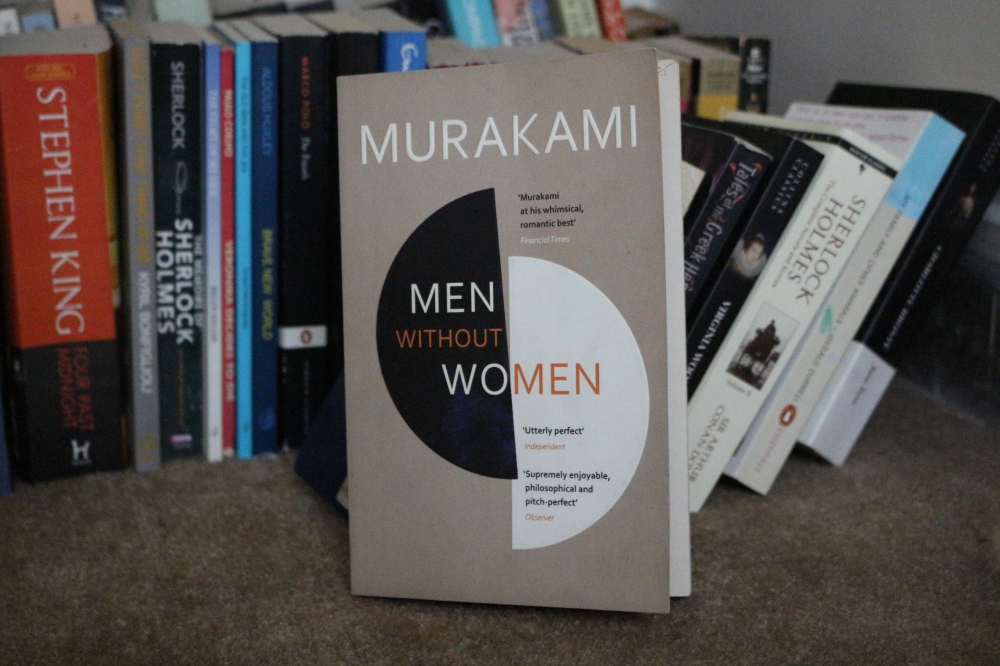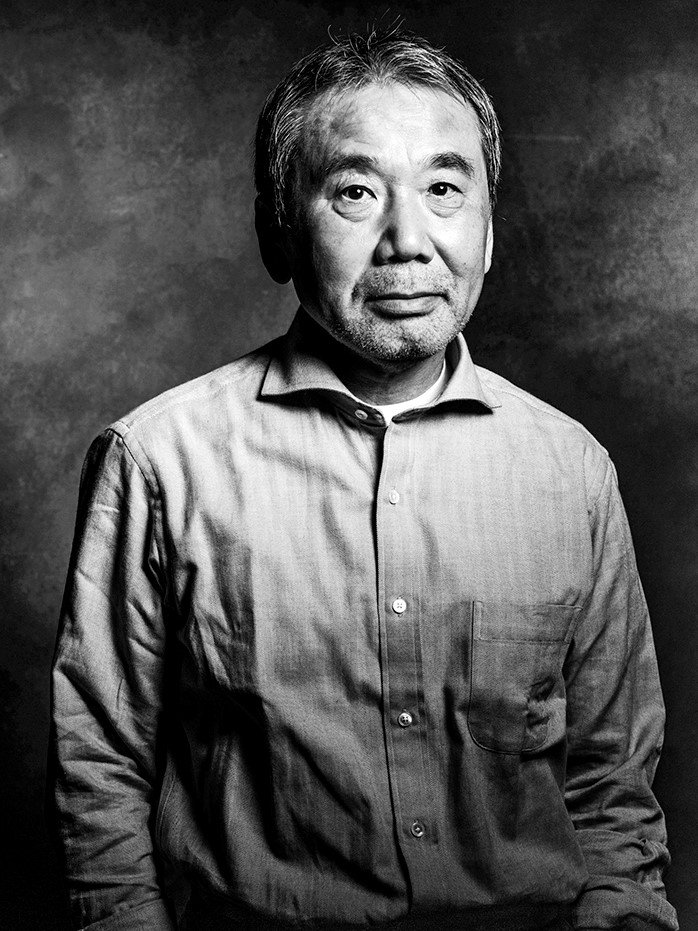It is only when the rain ceases to exist that the land apprehends it’s withering and wilting, and only when the verdant landscape burns to embers does the bird apprehend the shade of the fruitful tree, only when the rhapsodies fade does the ears apprehend the monotony, and only when the vision forfeits do the pearls glimmer in apprehension, only when the vessel aches does the medium unfold the truth, and only when the path leads astray, it is then when the horse leaves its own mark. And as Murakami says,
“And once you’ve become Men Without Women, loneliness seeps deep down inside your body, like a red-wine stain on a pastel carpet.”
– Haruki Murakami, Men Without Women

You see, it is often when we lose the warmth of the hands that have incessantly guided us through thick and thin and have looked beyond our own barriers to ensure our own wellness, it is only then when we apprehend the definition of cold. For you never feel for something truly until it goes missing, permanently or momentarily. This is exactly what this book has been about, how singular you become without things that you often take for granted in life. How it is not only about the means, but the means leading to an end, and what end precisely. How ignorance cannot be swayed away for forever because it does come back haunting one sooner or later.
This isn’t only about the co-existence of two genders but encompasses the way things function around us silently and how when the noise fades out, only then do we apprehend the silent scheme of works around us. How people behave and act, what they say and why what motive lies behind the prominence and what edifice supports the upheaval.
“But Mr. Kafuku, can any of us ever perfectly understand another person? However much we may love them?”
– Haruki Murakami, Men Without Women
The Author, Plot and More Information
The author of the book, Men Without Women is Haruki Murakami. He is an acclaimed Japanese writer having written numerous books in the genres of fiction and non-fiction and his books are not only best-sellers in Japan but internationally as well. His works have been translated into more than than 50 languages. His writing routine is also pretty disciplined and productive with him writing ten pages a day and then going on a run for 10 kilometers, work on translations, reading books and listening to records.
“I find writing novels a challenge, writing stories a joy. If writing novels is like planting a forest, then writing short stories is more like planting a garden.”
– Haruki Murakami

Here is a list of his notable works (P.S these do not include all of his works, just a few that I know of):
- 1Q84
- After Dark
- Norwegian Wood
- Wind/Pinball
- The Wind-Up Bird Chronicle
- South of the Border, West of the Sun
- What I Talk About When I Talk About Running
- Colorless Tsukuru Tazaki and His Years of Pilgrimage
Men Without Women is a short stories collection by Haruki Murakami and thus consists of 7 riveting, compelling, amiable and philosophical short stores which are:
- Drive My Car
- Yesterday
- An Independent Organ
- Scheherazade
- Kino
- Samsa In Love
- Men Without Women
My Review and Experience Regarding The Book
To be honest, as an avid reader I grew up reading novels more than short stories because personally I liked to see how the writer would develop the characters over the length of the story and how many plot twists would accompany along with it. So naturally, I believed that there would be a lack of these elements in short stories and so I was not interested in reading them to that extent and honestly I wouldn’t have bought this book in the first place before reading it if I knew that this was a collection of seven short stories.
However, many of my fellow readers had recommended Murakami’s works to me and I saw this book on the racks in the bookshop and I couldn’t help but buy it without even opening it or reading the blurb. And when I opened to read it, it is then when I realized, oh, so I have to read short stories now and I must say this was the beginning of a new passion. I would have never apprehended this if it wasn’t for this book, how much I would love the phenomenon of reading short stories. You see, I have always felt immensely for the art of completion but simultaneously I am terrible at it, so often in the scheme of daily work, I would hate it when I couldn’t commit myself to a longer novel and so reading short stories not only give you that sort of spontaneity but also fulfills that sentiment of completion.
What I discovered surprisingly was the unfathomable depth that was followed by each character in the short stories and how exquisitely they were represented. Moreover, the characters were relatable because the plots were related to practicality but they all had some sense of intricacy to them. Each story has some sort of meaning and edifice concealed in it and that is gradually revealed and unfolded as you continue to read it. The most appreciable tenet, is that the writing itself is not verbose but doesn’t lose its charm at the same time and is thought-provoking.
“Tobacco’s a killer,” Kafuku said.
“Being alive is a killer, if you think about it,” Misaki said.– Haruki Murakami, Men Without Women
Murakami, leaves around these brief yet unfathomable philosophical clauses and lines just spontaneously in the flow of his writing which leaves you in contemplation. And what is surprising is that there is this sort of hidden intricacy in each short story regardless of how simple or spontaneous the plot is and that just binds the entire art piece as one.

My Favorite Lines From the Book
Here are a few lines from the book Men Without Women by Haruki Murakami that have stayed with me:
(P.S. All of these quotes/lines ARE from Men Without Women and they are written by Haruki Murakami, I was just too lazy to write it beside every line.)
- “But Mr. Kafuku, can any of us ever perfectly understand another person? However much we may love them?”
- “But maybe that’s the way it should be. Maybe working on the little things as dutifully and hostels, as we can, is how we stay sane when the world is falling apart.”
- “But the self that one returned to was never exactly the same as the self that one had left behind.”
- “Tobacco’s a killer,” Kafuku said.
“Being alive is a killer, if you think about it,” Misaki said. - “Life is strange, isn’t it? You can be totally entranced by the glow of something one minute, be willing to sacrifice everything to make it yours, but then a little time passes, or your perspective changes a bit, and all of a sudden you’re shocked at how faded it appears. What was I looking at? you wonder.”
- “Like dry ground welcoming the rain, he let solitude, silence and loneliness soak in.”
- “If you think of someone enough, you’re sure to meet them again,” she said in parting. This time there was real warmth in her voice. “Lookout for the birds,” he called after her.
- Yet had he been a fish or a sunflower, and not a human being, he might never have experienced this emotion. So, he felt.
“To look inside your own heart as perceptively and seriously as you can, and to make peace with what you find there. If we hope to truly see another person, we have to start by looking within ourselves.“
– Haruki Murakami, Men Without Women.
This is a topic that is close to my heart… Many thanks! Where are your contact details though?
LikeLiked by 1 person
Hello! I hope that you’re in the best of spirits and it means a lot to me that the blog resonated with you. You can contact me via my e-mail address: imaansiddiq15@gmail.com
LikeLike
wonderful
LikeLiked by 1 person
Thank you so much! 🙂
LikeLiked by 1 person
Welcome😊
please visit my blog too
LikeLiked by 1 person
I would love to! I’ll definitely start reading up on it. 🙂
LikeLiked by 1 person
Thanks a lot:)
LikeLike